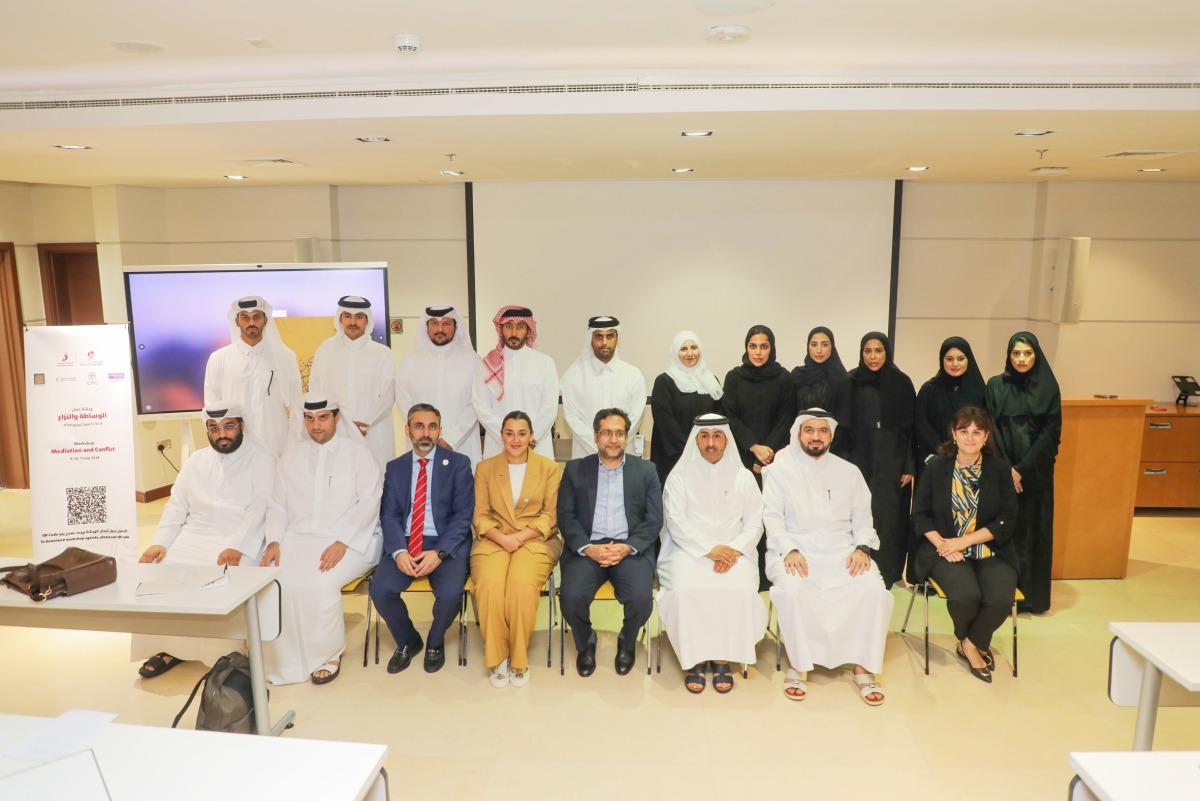Qatar Red Crescent Society (QRCS) recently co-organized a three-day Mediation and Conflicts workshop in Doha, Qatar, in collaboration with the Ministry of Foreign Affairs’ Diplomatic Institute, the Center for Conflict and Humanitarian Studies (CHS), the Center of Competence on Humanitarian Negotiation (CCHN), and the International Committee of the Red Cross (ICRC) – Qatar. The workshop aimed to provide young diplomats with the necessary knowledge and skills for effective mediation and conflict resolution in humanitarian contexts.
Participants in the workshop engaged in expert-led sessions and interactive discussions, where they gained insights into international humanitarian law (IHL), humanitarian diplomacy, negotiation techniques, and best practices in peace deals and conflict resolution. The event was designed to equip diplomats with practical tools to address the serious implications of armed conflicts on civilians and community stability. The Secretary-General of QRCS, Faisal Mohamed Al Emadi, highlighted the importance of humanitarian and negotiation efforts in promoting security and peace-building in the face of global challenges.
Al Emadi emphasized Qatar’s role in international humanitarian and diplomatic affairs, which includes providing aid to affected populations during crises and actively mediating conflicts to achieve peaceful solutions. He stressed the need for national humanitarian negotiation capacity-building to effectively address current and future complications. The collaborative efforts of humanitarian, academic, and specialized organizations, Al Emadi noted, are essential in enhancing the effectiveness of humanitarian and negotiation initiatives.
The workshop served as a platform for exploring innovative approaches to mediation and conflict resolution, with the ultimate goal of minimizing the impact of armed conflicts on civilian populations and promoting community stability. Participants learned practical strategies for negotiating peace deals and resolving conflicts in humanitarian settings, drawing on insights from international humanitarian law and humanitarian diplomacy. The event underscored the importance of coordination and collective action in addressing complex global challenges.
By equipping diplomats with the necessary knowledge and skills for effective mediation and conflict resolution, the workshop aimed to enhance the capacity of individuals and organizations to respond to humanitarian crises and promote peace-building efforts. Through expert-led sessions and interactive discussions, participants gained practical insights into negotiation techniques and best practices in peace deals and conflict resolution. The event highlighted the critical role of coordination and collective action in addressing the challenges posed by armed conflicts and promoting community stability.










